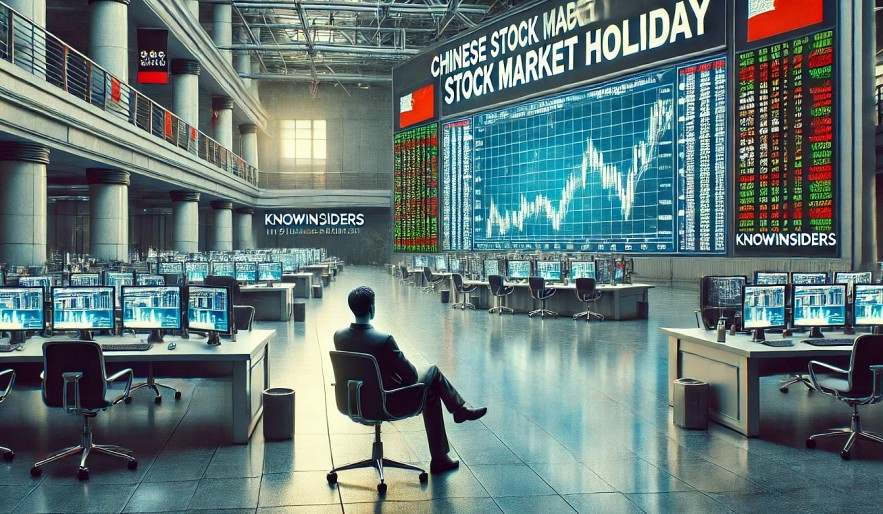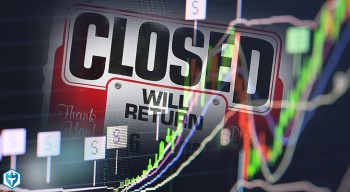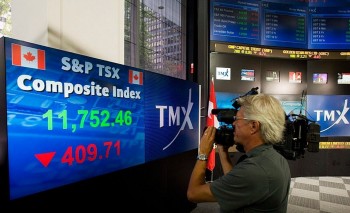China Stock Market Holidays 2025: Key Dates, Trading Hours & Investor Strategies
 China Calendar 2025 - Full List of Public Holidays And Observances: Dates and Celebrations China Calendar 2025 - Full List of Public Holidays And Observances: Dates and Celebrations |
Chinese Stock Market Overview: Key Insights into SSE, SZSE & HKEX for 2025
China’s stock market ranks among the most influential in the world, reflecting the nation’s rapid economic growth, technological advancement, and expanding global impact. At the core of this financial powerhouse are two main exchanges: the Shanghai Stock Exchange (SSE) and the Shenzhen Stock Exchange (SZSE), both of which play a vital role in facilitating capital flow and investment across the country. In parallel, the Hong Kong Stock Exchange (HKEX) acts as a gateway connecting Mainland China with international investors.
Established in 1990, the SSE is home to China’s largest and most established companies, including many state-owned enterprises (SOEs). The SZSE, by contrast, focuses on small- and medium-sized enterprises (SMEs), particularly those in high-growth sectors such as technology, healthcare, and renewable energy. Together, these exchanges support the trading of equities, bonds, ETFs, and derivatives, catering to both institutional and retail investors.
China’s benchmark indices—such as the SSE Composite Index, SZSE Component Index, and ChiNext Index—offer key insights into market sentiment and sector performance. The STAR Market (Science and Technology Innovation Board), launched by SSE, further positions China as a leader in high-tech and innovation-focused listings, drawing comparisons to the U.S. NASDAQ.
Operating under the supervision of the China Securities Regulatory Commission (CSRC), China’s stock market is known for its strict regulatory standards, high levels of retail investor participation, and growing openness to global capital. Programs like Stock Connect and Bond Connect allow international investors to trade directly in A-shares listed in Mainland China, enhancing access to this high-potential market.
This article provides a detailed overview of the 2025 Chinese stock market holiday calendar, trading hours, key market features, and expert tips for navigating one of the world’s most dynamic and strategically important financial ecosystems.
 Hong Kong Stock Exchange Holidays in 2025: Closures and Operating Hours Hong Kong Stock Exchange Holidays in 2025: Closures and Operating Hours |
 |
| Chinese Stock Holidays 2025 |
Official Holidays for the Chinese Stock Market in 2025
The Chinese stock market, encompassing the Shanghai Stock Exchange (SSE) and the Shenzhen Stock Exchange (SZSE), observes specific public holidays during which trading is suspended. In 2025, the market closures align with China's official public holiday schedule. Below is a detailed overview of each holiday, its significance, and the corresponding market closure dates:
1. New Year's Day
- Date: January 1, 2025 (Wednesday)
- Significance: Marks the beginning of the Gregorian calendar year.
- Market Closure: The SSE and SZSE will be closed on January 1, 2025.
2. Spring Festival (Chinese New Year)
- Dates: January 28 to February 3, 2025 (Tuesday to Monday)
- Significance: The most important traditional festival in China, celebrating the lunar new year with family reunions and various cultural activities.
- Market Closure: Both exchanges will be closed from January 28 to February 3, 2025.
3. Qingming Festival (Tomb-Sweeping Day)
- Dates: April 4 to April 6, 2025 (Friday to Sunday)
- Significance: A day to honor ancestors by visiting and cleaning their graves.
- Market Closure: The SSE and SZSE will be closed on April 4, 2025.
4. Labour Day
- Dates: May 1 to May 5, 2025 (Thursday to Monday)
- Significance: Celebrates the contributions of workers.
- Market Closure: The exchanges will be closed from May 1 to May 5, 2025.
5. Dragon Boat Festival
- Dates: May 31 to June 2, 2025 (Saturday to Monday)
- Significance: Commemorates the ancient poet Qu Yuan, featuring activities like dragon boat races.
- Market Closure: The SSE and SZSE will be closed on May 31, 2025.
6. Mid-Autumn Festival and National Day
- Dates: October 1 to October 8, 2025 (Wednesday to Wednesday)
- Significance: Mid-Autumn Festival celebrates the harvest and full moon, while National Day marks the founding of the People's Republic of China.
- Market Closure: Both exchanges will be closed from October 1 to October 8, 2025.
Please note that the Chinese government often adjusts weekends to create longer holiday periods. For instance, in 2025, adjusted working days include January 26 (Sunday) and February 8 (Saturday) to compensate for the Spring Festival holiday. Similarly, September 28 (Sunday) and October 11 (Saturday) are adjusted working days related to the National Day holiday.
For the most accurate and up-to-date information, it's advisable to consult the official announcements from the Shanghai Stock Exchange and the Shenzhen Stock Exchange, as well as the China Securities Regulatory Commission (CSRC).
Learn more: 2025 China Official Calendar - 27 Days in Total: Two More Public Holidays
Trading Hours and Sessions of the Chinese Stock Market
The trading hours for the Shanghai and Shenzhen Stock Exchanges are as follows:
-
Pre-Open Session: 9:15 AM - 9:25 AM CST
Allows for the placement of orders before trading begins.
-
Morning Trading Session: 9:30 AM - 11:30 AM CST
The first half of the trading day.
-
Afternoon Trading Session: 1:00 PM - 3:00 PM CST
The second half of the trading day.
The stock market is closed on weekends and public holidays.
Unique Features of the Chinese Stock Market
The Chinese stock market stands out globally for its distinctive characteristics, reflecting the country's dynamic economy, cultural heritage, and unique market structure. Here’s an in-depth look at what makes the Chinese stock market truly exceptional:
1. Segmentation of Shares: A-Shares, B-Shares, and H-Shares
- The Chinese stock market is divided into A-shares (domestic currency-denominated shares traded on the Shanghai and Shenzhen Stock Exchanges), B-shares (foreign currency-denominated shares), and H-shares (Chinese company shares traded on the Hong Kong Stock Exchange).
- This segmentation allows both domestic and international investors to participate in China's growth while navigating different levels of accessibility.
2. Dominance of Retail Investors
- Unlike many developed markets where institutional investors dominate, retail investors account for a significant portion of trading activity in China.
- This creates a fast-paced and highly volatile trading environment, with rapid price movements driven by sentiment, speculation, and short-term trends.
3. State-Owned Enterprises (SOEs) at the Core
- Many large-cap stocks listed on the Shanghai Stock Exchange are state-owned enterprises (SOEs) in sectors like banking, energy, and telecommunications.
- These companies provide stability to the market but are also subject to policy shifts and government influence.
4. Technology and Innovation Boom
- The Shenzhen Stock Exchange focuses on innovative, high-growth companies, often referred to as the NASDAQ of China.
- The STAR Market (Science and Technology Innovation Board), launched in 2019, is a platform for technology startups, showcasing China's emphasis on high-tech and future-ready industries.
5. Integration with Global Markets
- The Stock Connect program links the Shanghai, Shenzhen, and Hong Kong stock exchanges, allowing international investors to trade A-shares and domestic investors to access offshore markets.
- This program has significantly increased foreign participation in the Chinese stock market, enhancing liquidity and global integration.
6. Government Influence and Policy-Driven Market
- The Chinese government plays an active role in shaping market dynamics, often introducing policies to stabilize markets during periods of volatility or economic uncertainty.
- Investors closely monitor government announcements, as they can have an immediate and significant impact on stock prices.
7. Cultural and Seasonal Influences
- Cultural events like Chinese New Year and Golden Week can significantly impact trading volumes and market sentiment, as retail investors often step away during these periods.
- Companies also tend to align earnings releases and business plans with key cultural and economic milestones.
8. High Volatility and Opportunities for Short-Term Gains
- The combination of retail dominance, speculative trading, and economic policy changes creates high volatility, which can be both a risk and an opportunity for traders.
- Active traders often thrive in this environment, leveraging short-term price movements for quick gains.
9. Focus on Sustainability and Green Finance
- China is a global leader in green bonds and sustainable finance, with increasing investor interest in companies aligned with environmental, social, and governance (ESG) principles.
- This focus reflects the country's commitment to combating climate change and supporting sustainable development.
10. Restricted Capital Flows and Currency Considerations
- While foreign participation is growing, capital flows in and out of China are still regulated, and the Chinese yuan’s value can influence the market.
- Investors often consider currency risk when trading Chinese stocks, particularly in international markets.
The unique features of the Chinese stock market make it both challenging and rewarding. Understanding these nuances is essential for investors looking to navigate one of the world’s most dynamic and rapidly evolving financial ecosystems.
Advice and Tips for Navigating the Chinese Stock Market
For investors, the Golden Week holiday necessitates careful planning as the extended closure means a halt in domestic trading activities. During this time, global market movements and international developments may impact Chinese-related securities such as ADRs or ETFs, creating potential opportunities or risks for portfolio adjustments upon the market’s reopening.
-
Plan for Holidays
Account for extended market closures like Chinese New Year and Golden Week to manage risks effectively.
-
Leverage Stock Connect
Utilize the Stock Connect program to access Chinese A-shares from Hong Kong or international markets.
-
Focus on Key Industries
Invest in growth sectors like technology, healthcare, and clean energy.
-
Monitor Government Policies
Stay informed about regulations and policies, as these can significantly impact market performance.
-
Diversify Across Markets
Consider balancing Chinese investments with exposure to global markets to mitigate risks.
Conclusion
The Chinese stock market, with its unique blend of cultural significance, rapid growth, and global connectivity, offers a dynamic environment for investors. By understanding its holiday schedule, trading hours, and distinct market features, participants can effectively navigate this influential financial landscape.
FAQs
1. When does the Chinese stock market close in 2025 for holidays?
The market observes holidays like Chinese New Year, National Day, and Dragon Boat Festival. A detailed list is provided above.
2. What are the trading hours of the Shanghai and Shenzhen Stock Exchanges?
Regular trading occurs from 9:30 AM to 3:00 PM CST, with a lunch break from 11:30 AM to 1:00 PM CST.
3. Is the Chinese stock market open on weekends?
No, the market is closed on Saturdays and Sundays.
4. What makes the Chinese stock market unique?
High retail participation, sectoral dominance, and integration with Hong Kong through Stock Connect distinguish it.
5. How can international investors access the Chinese market?
Through the Stock Connect program, Chinese ETFs, or by investing in ADRs listed in global markets.































